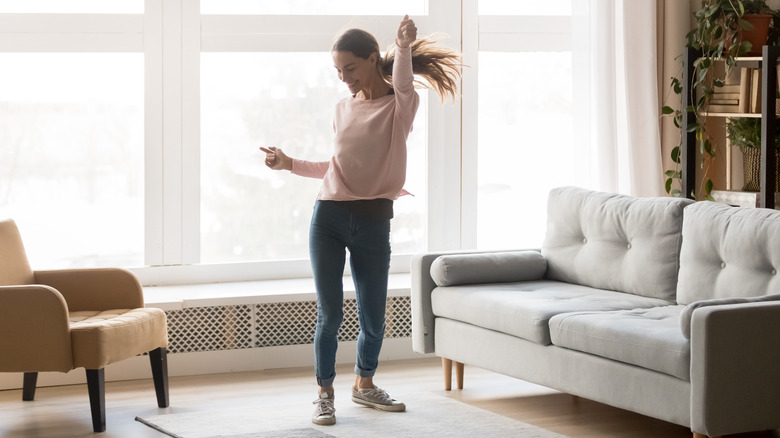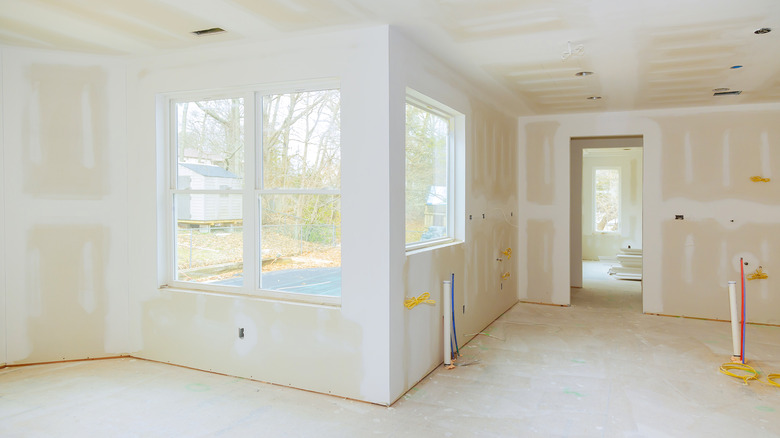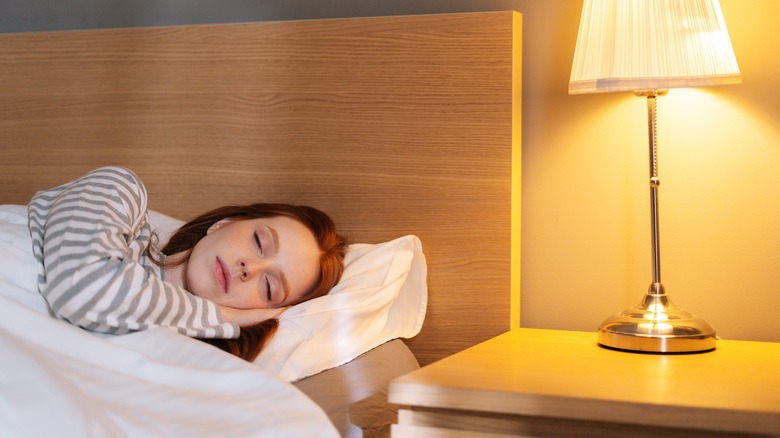Does Soundproof Drywall Live Up To The Hype?
Are you building a home theater in your basement or hoping to create a music studio in a spare bedroom? The use of soundproof drywall may sound like a good thing. After all, it may be just what you need to reduce noise exposure throughout the rest of the space. It may even seem like an easy way to add soundproofing to your home. Does it work, though?
The overall cost of soundproofing a room is between $1,000 and $2,500, according to Fixr, but that doesn't always include the use of soundproof drywall. If you're going to tear down existing drywall to install this particular type of material, you'll want to be sure you're making a wise investment. With numerous soundproofing products and methods available, it's possible to see significant noise reduction, but the question here is whether drywall made to be soundproof is worth your investment. Here's what you need to know.
How soundproof drywall works
What makes soundproof drywall different is its composition. In a traditional sheet of drywall, the interior is made of gypsum, a type of material that enables some sound minimization but often very little true soundproofing. The material is designed to keep treated air in the space and provide privacy.
Soundproof drywall, according to Soundproof Panda, has an interior layer within the gypsum designed to reduce sound penetration. This material is a rubbery substance sandwiched between two layers of gypsum. That rubber-like material is made of viscoelastic polymers, which, when soundwaves hit it, bounce off and back into the same space instead of making it through the drywall to other rooms.
That means that anywhere the drywall is present, there's less sound penetrating into the surrounding rooms, creating some level of soundproofing. However, you'll still need to add soundproofing to other parts of the room like the flooring, doors, and windows to create a truly soundproof space.
Does it really work?
Soundproof drywall will dampen sound, especially sounds from noisy neighbors. It may not provide as much noise protection from the rock music you hope to be jamming out to, though. Because it's thicker and overall designed to bounce soundwaves off the drywall, you'll certainly notice a difference with this drywall in place, though perhaps not perfectly quiet spaces.
There's a catch, though, according to Soundproof Idea. For it to work and provide this level of sound protection, it must be installed properly according to the manufacturer's recommendations. There are several companies that make these products, and they differ slightly in quality and cost. The installation process is not necessarily difficult, but you will need to undergo a significant renovation of the home.
If the sound of tearing down walls to install new drywall isn't appealing to you, you may be able to add a second layer of drywall to the first, or you may wish to look for another soundproofing method to use.


